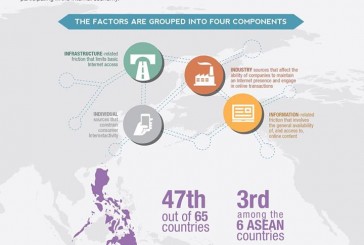Sen. Bam Urges Stakeholders: Work for Better Internet System Before 2015
Better shape up or be left behind.
Senator Bam Aquino urged the government, local telecommunications industry and other stakeholders to find ways to quickly improve the country’s Internet systems, with the 2015 ASEAN Economic Integration fast approaching.
“With its slow and expensive Internet connection, the country may be left behind in the battle for the information and communications technology (ICT) market,” said Aquino, chairman of the Committee on Trade, Commerce and Entrepreneurship.
“We should step up and shape up or we will be eating dust from the competition,” added Aquino, who recently called for an investigation regarding the country’s slow and expensive Internet connection.
The lawmaker said the ASEAN is pushing for the strengthening of the ICT industry as it is seen as one of the drivers in the economic and social transformation of the region.
According to the ASEAN ICT Master Plan, Aquino said one of the main goals is to create conducive business environment to promote trade, investment and entrepreneurship in the ICT sector.
However, the senator expressed apprehension over the country’s capacity to compete with neighboring countries with far more advanced technology in terms of Internet connection.
“One of the foundations of a good ICT industry is a reliable and fast Internet service. If we don’t have that, the country’s chances to grab a lion’s share of the market is lessened,” Aquino stressed.
Aquino cited a study commissioned by the Internet Corporation for Assigned Names and Numbers (ICANN) and released by Boston Consulting Group (BGC), saying the Philippines is trailing its ASEAN neighbors in terms of Internet infrastructure.

According to the report, the Philippines ranked 47th out of 65 countries covered by so-called BGC “e-Friction Index”, or factors that can inhibit consumers, businesses and others from fully participating in the national and the international Internet economy.”
The Philippines garnered an overall e-Friction score of 64, third among the six ASEAN member-countries covered by the report, behind Singapore (15th overall) and Malaysia (28th).
Thailand was one spot lower than the Philippines at 48th, Indonesia was 59th and Vietnam, 61st.

However, the Philippines was 53rd in terms of infrastructure friction component, composed of fixed- and mobile-broadband connections, bandwidth speeds, and pricing, among other things.
Also, the study showed the Philippines has the eighth most-expensive fixed broadband pricing among 65 countries included in the study.
“I called for an investigation to find solutions that will fix the situation and eventually, provide better service to consumers and improve the country’s business climate,” Aquino said.

Recent Comments